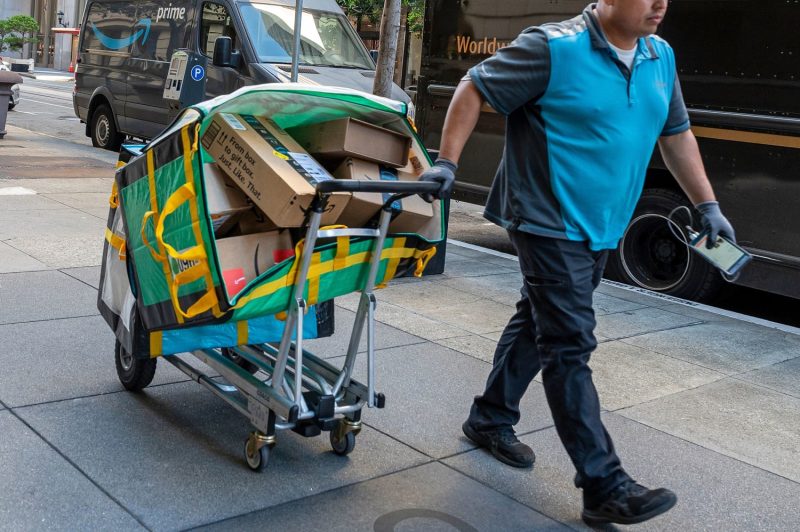Amazon Sued by D.C. AG for Allegedly Excluding Neighborhoods from Prime Delivery
The recent lawsuit filed by the Attorney General of the District of Columbia against Amazon has sparked a debate about equitable access to services in urban areas. The complaint alleges that Amazon has been systematically excluding certain neighborhoods from its Prime delivery service, thus discriminating against residents based on their geographic location.
This move by the D.C. Attorney General raises important questions about corporate responsibility and the impact of technology companies on local communities. As Amazon continues to expand its reach and influence, it becomes crucial to examine how its operations affect marginalized groups and underserved communities.
On one hand, Amazon’s Prime delivery service has been praised for its convenience and efficiency, allowing customers to receive their orders within a short timeframe. However, the alleged exclusion of certain neighborhoods suggests a troubling trend of digital redlining, where access to services is restricted based on socio-economic factors.
By limiting the availability of Prime delivery in specific neighborhoods, Amazon may be perpetuating existing disparities and reinforcing social inequalities. Residents in these excluded areas are denied the same level of service as their counterparts in more affluent neighborhoods, further deepening the divide between haves and have-nots.
Furthermore, the lawsuit against Amazon highlights the need for greater transparency and accountability in the tech industry. As technology companies wield increasing power and influence, it is imperative that they operate in a fair and responsible manner, taking into consideration the impact of their decisions on local communities.
In response to the allegations, Amazon has stated that it is committed to providing fast and reliable delivery service to all customers, regardless of their location. The company has also emphasized its efforts to expand its delivery network and reach more customers, including those in underserved areas.
However, the lawsuit underscores the importance of independent oversight and regulation to hold companies like Amazon accountable for their actions. Ensuring access to essential services for all residents, regardless of where they live, is key to building a more inclusive and equitable society.
In conclusion, the lawsuit against Amazon for allegedly excluding neighborhoods from its Prime delivery service raises critical issues about corporate responsibility and social equity. As technology companies play an increasingly dominant role in our lives, it is essential that they prioritize fairness and accessibility in their operations, ensuring that no community is left behind. The outcome of this legal action will have far-reaching implications for how tech giants interact with the diverse populations they serve and the responsibilities they have towards society as a whole.
